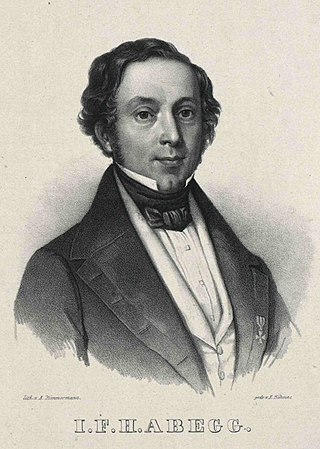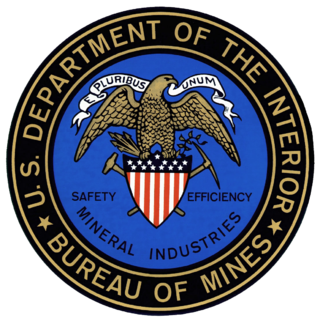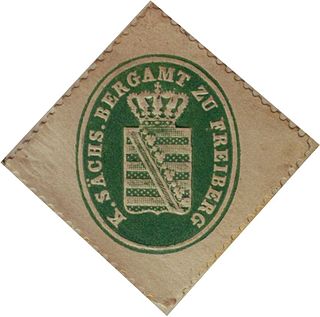The main purpose of mining acts (German : Berggesetze) in law is to govern the structure of mining authorities and their responsibilities, the entitlement to mining and the oversight of safety in and around the mines. With the introduction of parliamentary legislative powers, they replaced the earlier mining regulations issued by royalty or nobility to their states and territories.

The General Mining Act of 1872 is a United States federal law that authorizes and governs prospecting and mining for economic minerals, such as gold, platinum, and silver, on federal public lands. This law, approved on May 10, 1872, codified the informal system of acquiring and protecting mining claims on public land, formed by prospectors in California and Nevada from the late 1840s through the 1860s, such as during the California Gold Rush. All citizens of the United States of America 18 years or older have the right under the 1872 mining law to locate a lode or placer (gravel) mining claim on federal lands open to mineral entry. These claims may be located once a discovery of a locatable mineral is made. Locatable minerals include but are not limited to platinum, gold, silver, copper, lead, zinc, uranium and tungsten.

Julius Friedrich Heinrich Abegg was a German criminalist.

For most of the 20th century, the United States Bureau of Mines (USBM) was the primary United States government agency conducting scientific research and disseminating information on the extraction, processing, use, and conservation of mineral resources. The Bureau was abolished in 1996.

The Mine Safety and Health Administration (MSHA) is a large agency of the United States Department of Labor which administers the provisions of the Federal Mine Safety and Health Act of 1977 to enforce compliance with mandatory safety and health standards as a means to eliminate fatal accidents, to reduce the frequency and severity of nonfatal accidents, to minimize health hazards, and to promote improved safety and health conditions in the nation's mines. MSHA carries out the mandates of the Mine Act at all mining and mineral processing operations in the United States, regardless of size, number of employees, commodity mined, or method of extraction. David Zatezalo was sworn in as Assistant Secretary of Labor for Mine Safety and Health, and head of MSHA, on November 30, 2017. He served until January 20, 2021. Jeannette Galanais served as Acting Assistant Secretary by President Joe Biden on February 1, 2021 until Christopher Williamson took office on April 11, 2022.

Mining law is the branch of law relating to the legal requirements affecting minerals and mining. Mining law covers several basic topics, including the ownership of the mineral resource and who can work them. Mining is also affected by various regulations regarding the health and safety of miners, as well as the environmental impact of mining.
The law of Germany, that being the modern German legal system, is a system of civil law which is founded on the principles laid out by the Basic Law for the Federal Republic of Germany, though many of the most important laws, for example most regulations of the civil code were developed prior to the 1949 constitution. It is composed of public law, which regulates the relations between a citizen/person and the state or two bodies of the state, and the private law, (Privatrecht) which regulates the relations between two people or companies. It has been subject to a wide array of influences from Roman law, such as the Justinian Code the Corpus Juris Civilis, and a to a lesser extent the Napoleonic Code.

The Surface Mining Control and Reclamation Act of 1977 (SMCRA) is the primary federal law that regulates the environmental effects of coal mining in the United States.

The Office of Surface Mining Reclamation and Enforcement (OSMRE) is a branch of the United States Department of the Interior. It is the federal agency entrusted with the implementation and enforcement of the Surface Mining Control and Reclamation Act of 1977 (SMCRA), which attached a per-ton fee to all extracted coal in order to fund an interest-accruing trust to be used for reclamation of abandoned mine lands, as well as established a set environmental standards that mines must follow while operating, and achieve when reclaiming mined land, in order to minimize environmental impact. OSMRE has fewer than 500 employees, who work in either the national office in Washington, DC, or of the many regional and field offices.

The Sachsenspiegel is one of the most important law books and custumals compiled during the Holy Roman Empire. Originating between 1220 and 1235 as a record of existing local traditional customary laws and rulings, it was used in places until as late as 1900. Some legal principles as captured in the book reign into recent time laws throughout Europe. It is important not only for its lasting effect on later German and Dutch law but also as an early example of written prose in a Low German language. The Sachsenspiegel is the first comprehensive law book not in Latin, but in Middle Low German. A Latin edition is known to have existed, but only fragmented chapters remain.

The General State Laws for the Prussian States were an important code of Prussia, promulgated in 1792 and codified by Carl Gottlieb Svarez and Ernst Ferdinand Klein, under the orders of Frederick II. The code had over 17,000 articles, and covered fields of civil law, penal law, family law, public law, administrative law etc.

The German laws regulating alcohol use and sale are mostly focused on youth protection. In contrast to many other countries, legislation is relatively lenient and not designed to keep young people away from alcohol, but rather intended to teach them an appropriate approach to alcohol consumption, which is reflected by one of the lowest drinking ages in the world.
Carter v. Carter Coal Company, 298 U.S. 238 (1936), is a United States Supreme Court decision interpreting the Commerce Clause of the United States Constitution, which permits the United States Congress to "regulate Commerce... among the several States." Specifically, it analyzes the extent of Congress' power, according to the Commerce Clause, looking at whether or not they have the right to regulate manufacturing.

The Ministry of Mines is the ministry in the Government of India. The ministry functions as the primary body for the formulation and administration of laws relating to mines in India. The head of the ministry is G. Kishan Reddy, who has been serving since June 2024.

The Landtag of Prussia was the representative assembly of the Kingdom of Prussia implemented in 1849, a bicameral legislature consisting of the upper House of Lords (Herrenhaus) and the lower House of Representatives (Abgeordnetenhaus). After World War I and the German Revolution of 1918–19 the Landtag diet continued as the parliament of the Free State of Prussia between 1921 and 1934, when it was abolished by the Nazi regime.

Energy laws govern the use and taxation of energy, both renewable and non-renewable. These laws are the primary authorities related to energy. In contrast, energy policy refers to the policy and politics of energy.

The German Federal Railway Authority has been the independent federal authority for the regulation of the railways in Germany since 1 January 1994. It is under the supervision and direction of the Federal Ministry for Digital and Transport and is headed by a president.

The Saxon Mining Office is the executive authority for mining rights in the German state of Saxony. It is also responsible for all non-metallic mineral resources on the terrain of the former East Germany.
A Bergamt or mining office is a mining supervisory authority in German-speaking countries below the level of the state. It exercises immediate supervision of all activities, facilities and equipment associated with mining within a mining district. This includes the promotion and monitoring of operational safety and workplace safety.

The Bergregal was the historic right of ownership of untapped mineral resources in parts of German-speaking Europe; ownership of the Bergregal meant entitlement to the rights and royalties from mining. Historically, it was one of those privileges that constituted the original sovereign rights of the king.
The Stream Protection Rule was a United States federal regulation issued by the Office of Surface Mining Reclamation and Enforcement that went into effect on January 19, 2017. These regulations implement Title V of the 1977 Surface Mining Control and Reclamation Act (SMCRA). The original regulations had been issued in 1979 and were updated in 1983. Litigation over mountaintop removal mining required changes to the regulations, which were issued in 2008. These regulations were in turn struck down by a judge after litigation by environmental groups. The new regulations, the Stream Protection Rule, were issued in January 2017.